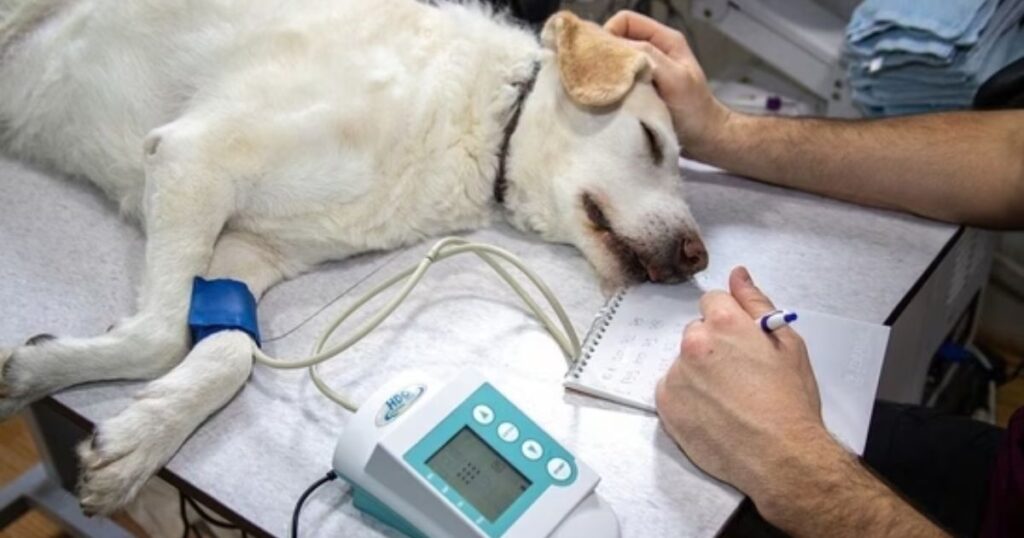Dog vomiting can be a distressing experience for both pets and their owners.When your furry friend suddenly starts vomiting, it is natural to feel concerned and unsure of what steps to take next.
Understanding the potential reasons behind your dog’s vomiting is essential for providing the best possible care and ensuring their well being.Let’s explore some common causes of dog vomiting and what you can do to help your canine companion feel better.
5 Reasons Why Your Dog Is Vomiting
- Bloating, particularly common in large breeds like German Shepherds, can lead to vomiting.
- Ingesting harmful substances such as toxic plants and objects can cause vomiting.
- Contaminated water sources may upset your dog’s stomach and result in vomiting.
- Parasites, like worms, can make your dog sick and induce vomiting.
- Infectious diseases such as parvovirus can cause severe vomiting and other symptoms in dogs.
What Can Cause Dog Vomiting?
Dog vomiting can have multiple causes, including dietary indiscretions, ingestion of harmful substances, contaminated water, parasites and infectious diseases.Identifying the specific trigger for your dog’s vomiting may require veterinary evaluation to ensure prompt and appropriate treatment.
1. Your Dog is Bloated
It is a serious condition.Too much air in the stomach can cause twisting and cut off circulation. Large dogs like German Shepherds are more at risk.Watch their eating habits closely to prevent bloating.If you suspect bloating, seek veterinary help immediately.

Bloating can be caused by eating too much or too quickly.It is crucial to monitor your dog’s food and water intake.Prompt treatment can prevent complications and ensure your furry friend’s well being.
You May Like This: Overlay
2. Swallowing the wrong food
Sometimes, dogs vomit because they eat something they should not.It could be a harmful plant or an object that gets stuck in their stomach.When dogs swallow the wrong food, it can cause a blockage, leading to discomfort and vomiting.

It is essential to keep harmful items out of reach and monitor what your dog ingests to prevent these incidents.If you suspect your dog has swallowed something harmful, seek veterinary care immediately to avoid further complications.
You May Like This: The Traditional Sarees Of Tamil Nadu: An Overview
3. Contaminated Water
Contaminated water can make your dog sick.Dogs drinking from dirty sources like puddles, unclean bowls may experience stomach upset and vomiting.Exposure to toxic algae in lakes or ponds can lead to severe illnesses, starting with vomiting.

It is essential to provide your dog with clean, fresh water to prevent these issues and ensure their well being.If you suspect your dog has consumed contaminated water and is showing signs of illness, contact your veterinarian for guidance and treatment.
4. Parasites
Parasites are tiny organisms that can live inside your dog’s body and make them sick.Worms are a common type of parasite that can cause vomiting in dogs. Sometimes, you might even see worms in your dog’s vomit and poop.

If your dog has parasites, they may not always show symptoms right away.But vomiting can be a sign that something’s wrong.It is essential to take your dog to the vet for treatment if you suspect they have parasites to help them feel better and stay healthy.
5. Infectious Disease
Infectious diseases can make your dog very sick.These illnesses spread quickly among dogs, especially in places where many dogs gather.For example, parvovirus is a severe infectious disease that can cause vomiting, diarrhea and dehydration in dogs.

Symptoms of infectious diseases vary, but they often include vomiting and lethargy.If you notice these signs in your dog, it is essential to contact your veterinarian immediately.They can diagnose the illness and provide appropriate treatment to help your dog recover quickly.
Should You Be Worried When Your Dog Is Vomiting?
Sometimes, vomiting is no big deal and your dog will bounce back quickly.But, if the vomiting continues for a long time, if your dog shows other signs like weight loss and lack of appetite, it could be a red flag.
In serious cases, sudden and severe vomiting might mean your dog swallowed something dangerous, so it is best to seek vet advice.Keep an eye on your dog’s overall health and behavior.
If they seem okay after throwing up once, they’re probably fine.But, if vomiting persists and comes with other worrying signs, it is time to call the vet.Always trust your gut and prioritize your dog’s well being.
Treatment For Dog Vomiting
Treating your dog’s vomiting begins with identifying the underlying cause.If your dog is vomiting due to a minor issue like dietary indiscretion or mild stomach upset, you can try withholding food for 12-24 hours to allow their stomach to settle.

After this period, reintroduce small amounts of bland food, such as boiled chicken and rice, to ease digestion.It is crucial to ensure your dog stays hydrated, so encourage them to drink water in small amounts frequently.
If your dog’s vomiting persists and is accompanied by other concerning symptoms like lethargy, dehydration, blood in the vomit, it is essential to seek veterinary care promptly. Your vet will perform a thorough examination and may recommend diagnostic tests like bloodwork, x-rays, ultrasound to determine the cause of the vomiting.
Treatment options may include medications to alleviate nausea, fluid therapy to rehydrate your dog, surgical intervention in severe cases. Always follow your vet’s guidance for the best outcome and ensure your dog receives the appropriate care and support during their recovery.
FAQ’s
How can I help my dog stop vomiting?
Consulting with a veterinarian to determine the underlying cause and appropriate treatment is the best way to help your dog stop vomiting.
What do you give a dog after vomiting?
After vomiting, you can give your dog small amounts of water followed by a bland diet of boiled chicken and rice.
Is dog vomiting serious?
Dog vomiting can be serious, depending on the cause and accompanying symptoms.
What can make a dog vomit?
Various factors such as dietary indiscretions, ingestion of harmful substances, contaminated water, parasites and infectious diseases can make a dog vomit.
Final Thought
Dog vomiting can stem from various causes, ranging from minor dietary indiscretions to more serious health concerns.While occasional vomiting may not always warrant immediate concern, it’s crucial to monitor your dog’s condition closely and take note of any accompanying symptoms.Persistent vomiting, especially when accompanied by signs like weight loss, lethargy, or loss of appetite, should prompt a visit to the veterinarian for a thorough evaluation and proper diagnosis.
Ultimately, as responsible pet owners, it is our duty to prioritize our dog’s health and well being. By staying informed about potential causes of vomiting, remaining attentive to changes in our dog’s behavior and seeking timely veterinary care when needed, we can help ensure that our furry companions lead happy and healthy lives.












